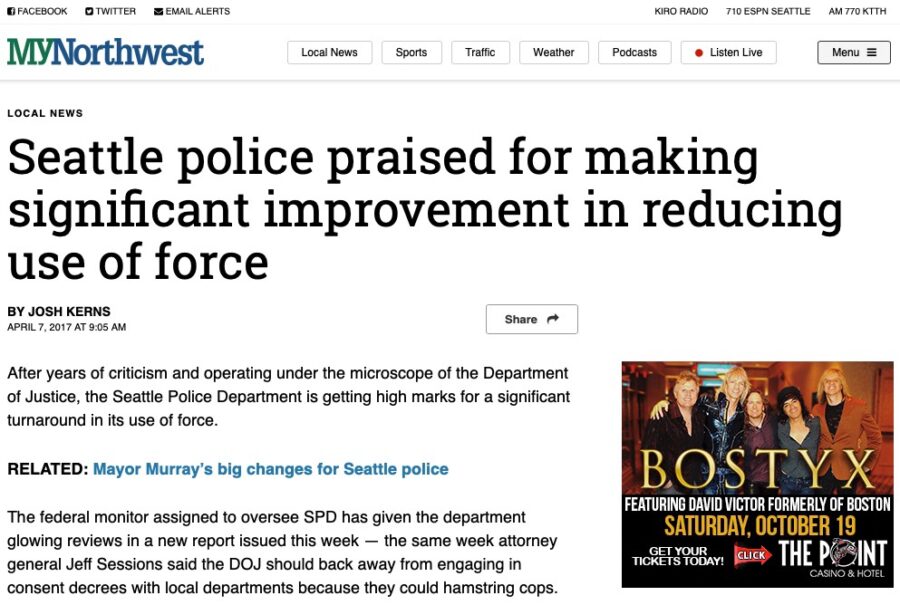Chief Operating Office Brian Maxey admits there was plenty of initial skepticism and criticism from the rank and file, especially regarding the emphasis on so-called “de-escalation.”
“It doesn’t mean that you’re not ever going to go hands on with someone or never have to resort to force, especially in defense of yourself or others, but that the policing needed to become a lot more thoughtful and you needed to use time, distance and shielding just to slow down events and deal with them very thoughtfully,” Maxey said.
The report comes the same week US Attorney General Jeff Sessions said the Department of Justice should back away from entering into consent decrees with local police departments in large part because they could prevent cops from doing their jobs.
But Maxey admits it’s unlikely SPD would have changed without it.
“I would like to think that the department could have done this on its own without the guiding hand of the DOJ and the monitor and the court but realistically I think it was the catalyst, I think it forced change to happen rapidly. I think it provided a structure to address the issues in the department and to tackle them head on,” Maxey said.
While the department brass is thrilled with the monitor’s findings, they’re far more gratified with the public’s perceptions of department changes.
Surveys have shown a significant increase in citizen satisfaction and confidence with SPD across all demographics, with a 72 percent approval rating in a 2016 report, according to Maxey.
Seattle police praised for making significant improvement in reducing use of force


